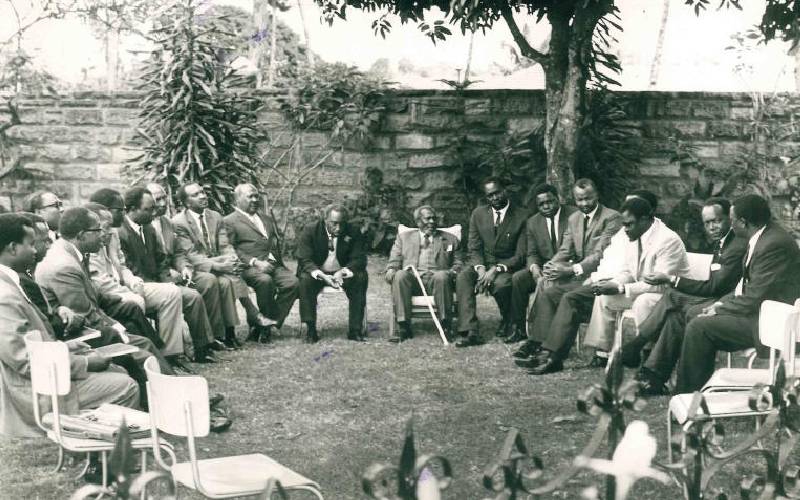×
The Standard e-Paper
Join Thousands Daily

President Jomo Kenyatta chairs the Cabinet at his Gatundu home following the murder of Tom Mboya, July 1969. [File, Standard]
Who killed Tom Mboya and why? What about JM Kariuki? Who killed Robert Ouko? Were these State-sponsored murders or not? Was there closure? Will we have closure? The truth is these deaths became inflexion points in our history.